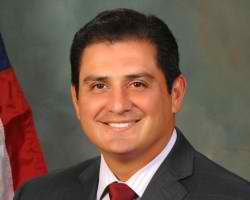Humane and giving as our hearts may be, we see the ill effects of homelessness every day on our streets, especially downtown. The scene is not unfamiliar; however, familiarity does not make it okay.
As a city, we’ve gone far beyond the crisis stage. What we are witnessing here in San Diego, which has the nation’s fourth largest homeless population, is a true emergency. Indeed, in October, Governor Brown issued a state of emergency stemming from San Diego’s hepatitis A outbreak, which is directly linked to the rise of homelessness and resulting unsanitary conditions, and has thus far led to 569 reported cases, 385 people hospitalized and 20 deaths — one of the worst such outbreaks in U.S. history.
In recent months, local leaders, businesses and non-profit agencies, along with the philanthropic community, have been working together to find long-term solutions to these ever-increasing social welfare and public health crises. One of the most obvious solutions to these epidemics is providing homes for the homeless. Nationwide studies and historical data show that securing homes for people living on the street can save millions of tax dollars.
Herein lies the irony of a measure of the tax reform bill recently passed by the U.S. House of Representatives that would effectively end the 4-percent Low-Income Housing Tax Credits and Multifamily Housing Revenue Bonds. These essential sources of funding have helped create and preserve more than 10,500 affordable rental housing units in the City of San Diego since 1997, according to the California Tax Credit Allocation Committee Project List.
On Nov. 27, a coalition of concerned citizens and elected officials held a news conference to voice our collective opposition to this little-known provision hidden within the $1.5 trillion Tax Cut and Jobs Act.
Our message, stated loud and clear: If passed as currently written, this bill would effectively eliminate the country’s most effective public financing tool available to build affordable housing.
As a result, San Diego and other cities large and small across the nation will see even more homeless people on the streets and risk increased public health outbreaks.
Together, we ask the public to contact their elected leaders in Congress and President Trump and demand that they not eliminate these vital programs.
Such an ill-advised decision would effectively bring to an end the progress we’ve achieved in providing affordable housing and curtailing homelessness for the less fortunate among us. Those efforts will, and must, continue.
Because we’ve still got a long way to go.
Ben Hueso is a California state senator representing District 40 in San Diego. Ricardo Flores is Executive Director of LISC San Diego, a national nonprofit funding agency.












